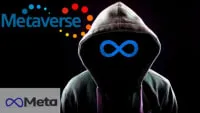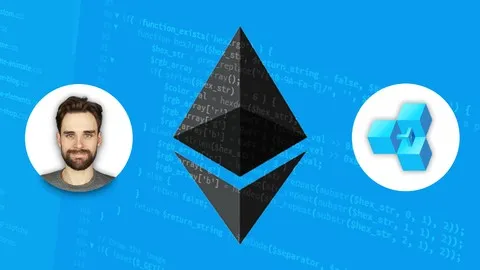
Introduction to Applied Cryptography 
This course provides an introduction to the fundamentals of cryptography and its application in the field of cybersecurity. Students will gain an understanding of the principles of cryptography and its role in protecting data and systems. ▼
ADVERTISEMENT
Course Feature
![]() Cost:
Cost:
Free Trial
![]() Provider:
Provider:
Coursera
![]() Certificate:
Certificate:
No Information
![]() Language:
Language:
English
![]() Start Date:
Start Date:
Self Paced
Course Overview
❗The content presented here is sourced directly from Coursera platform. For comprehensive course details, including enrollment information, simply click on the 'Go to class' link on our website.
Updated in [March 06th, 2023]
This course provides an introduction to Applied Cryptography. It covers the fundamentals of cryptosystems, cryptographic hash functions (CRHFs), and modular exponentiation. Students will learn the basics of cryptography, including encryption, decryption, and authentication. They will also explore the use of CRHFs to protect data and the use of modular exponentiation to generate secure keys. At the end of the course, students will have a better understanding of the principles of cryptography and how to apply them in real-world scenarios.
[Applications]
The application of this course can be seen in the areas of secure communication, authentication, and digital signatures. It can be used to protect data from unauthorized access and to ensure the integrity of data. It can also be used to create secure authentication protocols and digital signatures. Additionally, the knowledge gained from this course can be used to develop secure cryptographic algorithms and protocols for various applications.
[Career Paths]
1. Cryptographer: Cryptographers are responsible for designing, implementing, and analyzing cryptographic systems and protocols. They must have a deep understanding of mathematics, computer science, and cryptography. Cryptographers are in high demand due to the increasing need for secure communication and data storage. As the world becomes more connected, the need for cryptographers will continue to grow.
2. Security Analyst: Security analysts are responsible for identifying and mitigating security risks. They must have a strong understanding of cryptography, computer networks, and security protocols. Security analysts are in high demand due to the increasing need for secure systems and networks. As the world becomes more connected, the need for security analysts will continue to grow.
3. Cryptographic Engineer: Cryptographic engineers are responsible for designing and implementing cryptographic systems and protocols. They must have a deep understanding of mathematics, computer science, and cryptography. Cryptographic engineers are in high demand due to the increasing need for secure communication and data storage. As the world becomes more connected, the need for cryptographic engineers will continue to grow.
4. Cryptanalysis: Cryptanalysts are responsible for analyzing cryptographic systems and protocols. They must have a deep understanding of mathematics, computer science, and cryptography. Cryptanalysts are in high demand due to the increasing need for secure communication and data storage. As the world becomes more connected, the need for cryptanalysts will continue to grow.
[Education Paths]
1. Bachelor of Science in Computer Science: This degree path focuses on the fundamentals of computer science, including programming, algorithms, data structures, and software engineering. It also covers topics related to applied cryptography, such as cryptography algorithms, cryptographic protocols, and cryptographic systems. With the increasing demand for secure data and communication, this degree path is becoming increasingly popular.
2. Master of Science in Cybersecurity: This degree path focuses on the security of computer systems and networks. It covers topics such as cryptography, network security, and digital forensics. It also covers topics related to applied cryptography, such as cryptographic algorithms, cryptographic protocols, and cryptographic systems. With the increasing need for secure data and communication, this degree path is becoming increasingly popular.
3. Doctor of Philosophy in Cryptography: This degree path focuses on the theoretical aspects of cryptography, such as mathematical cryptography, cryptanalysis, and cryptographic protocols. It also covers topics related to applied cryptography, such as cryptographic algorithms, cryptographic protocols, and cryptographic systems. With the increasing need for secure data and communication, this degree path is becoming increasingly popular.
4. Master of Science in Applied Cryptography: This degree path focuses on the practical aspects of cryptography, such as cryptographic algorithms, cryptographic protocols, and cryptographic systems. It also covers topics related to applied cryptography, such as cryptographic algorithms, cryptographic protocols, and cryptographic systems. With the increasing need for secure data and communication, this degree path is becoming increasingly popular.
Course Provider

Provider Coursera's Stats at AZClass
Introduction to Applied Cryptography introduces the basic principles of cryptography and its application in the field of network security. Students will understand the principles of cryptography and its role in securing data and systems. Introduction to Applied Cryptography provides learners with a comprehensive overview of the fundamentals of cryptography. Learners will learn about cryptosystems, cryptographic hash functions, and modular exponentiation. Learners will be able to apply concepts of cryptography to real-world scenarios such as secure communication, authentication and digital signatures. They will also learn about the different types of encryption algorithms and their uses.
Discussion and Reviews
0.0 (Based on 0 reviews)
Explore Similar Online Courses

Online Business Academy - Affiliate Marketing

Video Editors: Learn 3D Video Compositing

Python for Informatics: Exploring Information

Social Network Analysis

Introduction to Systematic Review and Meta-Analysis

The Analytics Edge

DCO042 - Python For Informatics

Causal Diagrams: Draw Your Assumptions Before Your Conclusions

Whole genome sequencing of bacterial genomes - tools and applications

What& Meta - How Metaverse Change the World - Short Course

Code Your Own Cryptocurrency on Ethereum (ERC-20 Token)


Start your review of Introduction to Applied Cryptography